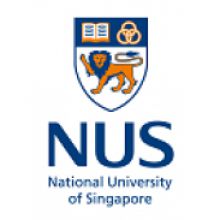What springs to mind when you think about Singapore?
I’ve just returned from the city state off the coast of southern Malaysia and must admit to having had a rather unfavourable view of the Lion City before my visit. I had seen news reports as a teenager about a ban on chewing gum and vaguely recalled hearing about someone being jailed for dropping litter.
While not seeing the nation as outright authoritarian, I had classified Singapore as a somewhat illiberal, soulless corporate hub filled with bored expat Brits holed up in high-rise apartment blocks.
Having spent the best part of a week there – including several visits to the National University of Singapore’s stunning ultra-modern campus – I’ve concluded that this perception of Singapore is somewhat unfair.
Singapore feels neat, tidy and very safe, but there is no shortage of fun – from the bustling nightlife of Clarke Quay and the more bohemian sorts enjoying a beer on its bridges, to the undergrads hanging out on the lawns of the NUS’ University Village and rock bands striking up in numerous downtown pubs.
For a built-up metropolis, it feels pleasantly open. Green spaces and historic buildings are preserved and pleasant riverside walkways are open to stroll along.
Another notion that I suspect is rather unfair – although also not totally unfounded – popped up several times during my stay: that Singaporean students, and indeed Asian students in general, are less creative than Western ones.
Singapore’s schools system may produce students with amazing maths and science skills (their 15-year-olds score the highest in the world in the Organisation for Economic Co-operation and Development’s Programme for International Student Assessment exams); however, goes the common refrain, the test-focused, rote-based learning does not foster innovative thinking.
Singapore, China and India may produce plenty of talented scientists and engineers, but, critics ask, do these countries instil in them the creative spark that is vital to achieving truly world-leading breakthroughs? Will they produce brilliant, free-thinking scholars who are able to challenge orthodoxies given that they emerge from strict social hierarchies in which respect for elders – including senior academics – is paramount? they add.
The creation of Yale-NUS College, a liberal arts college backed by the Ivy League institution, whose £148 million campus opened this month, could be seen in this context.
Is Singapore trying to import the multidisciplinary study model that is allegedly the source of US creativity and academic excellence, or does Asia already have this type of student? Is this view of the “uncreative” Asian student a comforting myth told by the West as the world’s academic locus shifts East?
Bertil Andersson, president of Nanyang Technological University, in Singapore, clearly thinks so.
“We cannot keep hoping that ‘yes, Asian students are good, but they are not creative’,” says the Swede, a former head of the European Science Foundation. “Maybe Asian students are risk-averse, but they are creative,” he told the OECD-Singapore Higher Education Futures conference, which took place in Singapore on 14 and 15 October.
Others say that there are differences between students linked to national characteristics. “I would say Asian students are better at engineering, while US students are better on design,” says T. V. Mohandas Pai, chairman of the Federation of Indian Chambers of Commerce and Industry’s higher education committee, on his experience of Indian engineers operating in America.
Whether the liberal arts colleges being set up in India, China and many other Asian countries will flourish in more socially conservative countries and foster a new generation of brilliant scholars remains to be seen. But there is clearly a huge ambition in Asia – backed with serious cash – to show that the region’s graduates can thrive in the creative sector, and that the countries are more than just science and engineering powerhouses.
Register to continue
Why register?
- Registration is free and only takes a moment
- Once registered, you can read 3 articles a month
- Sign up for our newsletter
Subscribe
Or subscribe for unlimited access to:
- Unlimited access to news, views, insights & reviews
- Digital editions
- Digital access to THE’s university and college rankings analysis
Already registered or a current subscriber? Login








